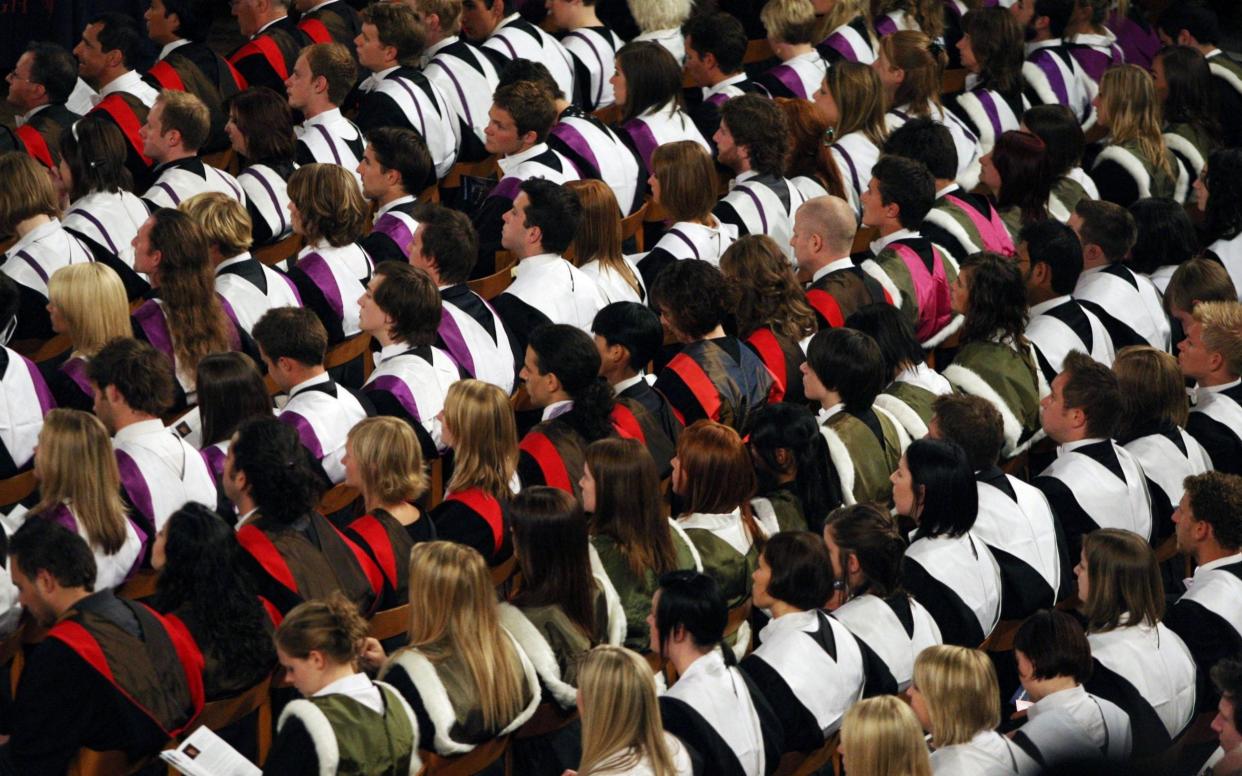Behave in bedroom to stop spread of coronavirus, students told

Behave in the bedroom, a health minister has urged students as he said that universities can only do so much to prevent the spread of the virus.
The Government is “deeply concerned” about the spread of Covid-19 among students particularly when they socialise with each other, Lord Bethel said.
His remarks come as hundreds of thousands of students prepare to return to university for the start of the new academic year.
Lord Bethel, a health and social care minister, praised the work of university leaders for making campuses as safe as possible by putting social distancing measures in place at lectures and classes.
But he warned that students, too, will need to play a role in stopping the spread of coronavirus when they mingle in pubs and clubs as well as each other’s bedrooms.
“We are deeply concerned about the spread among students. Some of that spread will take place in universities, and I pay tribute to the efforts of vice-chancellors to put in place social distancing arrangements in universities; we hope that they will have an impact,” Lord Bethel told The House of Lords.
“However, some of the effect is in their social life — in pubs, clubs and bedrooms up and down the country. “That is the responsibility of the students themselves, and we are looking at measures to enhance and enforce the social-distancing measures that will stop the spread of this disease.”
New guidance from the Department for Education on how universities can safely open this term states that lecturers should “considers whether some tuition in certain subjects can be conducted outside”.
It also suggests that the size of orchestras or casts in dramatic productions could be reduced, to limit larger gatherings. Universities should support students to socialise in “Covid-secure environments” which could include areas with floor markings or the use of screens to allow for social distancing.
Vice-Chancellors were told by ministers to make contingency plans for how to operate in the event of an outbreak on campus.
If there is a spike in cases, universities should only offer face-to-face lessons for “priority” courses such as medical and clinical degrees.
Universities were told to consider offering students incentives for complying with safety measures, as well as the use of disciplinary measures for those who break the rules.
This week, Exeter University announced that it has set up its own coronavirus testing system. It said it has partnered with a commercial test provider and promises that students will be able to access results within 24 hours.
It is the latest institution to unveil its own testing system, with Cambridge University telling students living in college accommodation that they will be able to have weekly tests whether they have symptoms or not.
Almost half of Russell Group universities either already have their own testing systems set up or are preparing to do so in time for the start of term, a survey by The Telegraph has revealed.
Oxford University hasset up an “in-house" testing service for all staff and students who have symptoms, saying this will "benefit the local community by reducing the risk of a further Covid-19 outbreak and reducing the pressure on NHS testing facilities".
Students and staff at Cardiff University will be able to get tests on arrival at campus even if they are asymptomatic, while Southampton and Warwick say they will provide home-based testing kits to students throughout the autumn term.
Imperial College said it is currently “exploring options” for staff and students to be routinely tested, while the London School of Economics and Political Sciences said it is developing test systems.
Manchester, Liverpool and Glasgow universities said they intend to open walk-in test sites close to their campuses. On Thursday, Health Secretary Matt Hancock also pleaded with freshers to follow the rules "for the sake of your parents' and grandparents' health".
With just weeks to go before the start of term, some Bristol University students have been told that they will need to live in a hotel for at least a month because their accommodation block has not been built in time.
The university apologised for the disruption, saying that building the new block of student flats had been delayed due to Covid-19.
Alistair Jarvis, chief executive of the vice-Chancellor membership group Universities UK, said that safety is the top priority.
“Throughout the coronavirus pandemic universities have followed – at a minimum – official government and public health advice and today’s government update provides a framework for universities to operate in a way that meets the needs and circumstances of their communities,” he said.
He said that university will be different to what students might have expected this autumn, but insisted that they can all “look forward to a high-quality, rewarding and enjoyable experience”.

 Yahoo News
Yahoo News 
